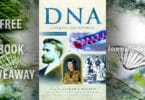As genealogical research evolves in the digital age, tracing your South African ancestry has become easier and more accessible than ever. With vast online databases, digitized records, and DNA testing, you can now explore family connections and ancestral roots from the comfort of your home. The key is knowing where to look and how to maximize these resources.
In this final article of the series, we’ll explore the most useful online tools and DNA testing services available for South African genealogy, offering you practical ways to uncover your heritage.
Key Online Resources for South African Genealogy
Online resources have revolutionized the world of genealogy by providing access to digitized records, databases, and research tools that were previously confined to physical archives. Here are some of the best platforms to aid your South African genealogical journey.
- FamilySearch
FamilySearch.org is a free, user-friendly platform offering an extensive South African record collection. These include birth, marriage, death certificates, and church and civil records. FamilySearch also has a growing archive of digitized estate files, making it a go-to resource for genealogists at any level.
What You Can Find:
• Civil registration records (birth, marriage, death)
• Church records (baptisms, marriages, burials)
• Census records
• Estate files and probate records
FamilySearch also allows you to build your family tree online, collaborate with other users, and search indexed collections by name, date, or place.
Ancestry.com is a subscription-based service that offers a massive collection of global records, including those from South Africa. While the platform requires payment, its database’s depth and intuitive search tools make it a powerful resource for genealogists. Ancestry also allows you to connect with distant relatives and explore shared family trees.
What You Can Find:
• Immigration and travel records (including ship manifests)
• Military records (Boer War and World War archives)
• Church and civil records
• Family trees of other researchers, which may overlap with your own
Ancestry also integrates DNA testing (which we’ll discuss below), allowing you to link genetic information to your family tree.
- South African National Archives (NAAIRS)
The National Automated Archival Information Retrieval System (NAAIRS) provides access to various records held by the National Archives of South Africa. While not all documents are digitized, the system allows you to search for indexed records, including estate files, military records, and court documents.
What You Can Find:
• Estate files and wills
• Immigration and citizenship documents
• Military service records
• Court cases and legal files
Once you locate a record in NAAIRS, you may need to request a physical copy from the archive or visit the repository to view the original documents.
- South African Genealogical Society (SAGen)
SAGen offers resources and databases for genealogists specifically focused on South Africa. One of its key features is a searchable Grave Database, which includes detailed cemetery records and photographs of graves across South Africa.
What You Can Find:
• Cemetery and gravestone records
• Burial locations
• Family history forums
• Local genealogical projects and community efforts
The SAGen website also links to other useful resources, helping you navigate various aspects of South African genealogy.
- MyHeritage
MyHeritage.com is another platform offering genealogical records and DNA testing services. Its large user base in Europe and South Africa makes it particularly valuable for finding matches with South African relatives.
What You Can Find:
• South African census and voter lists
• Vital records (birth, marriage, and death)
• DNA matches with South African individuals
MyHeritage also offers a free version with limited access, making it more accessible for beginners.
DNA Testing: A Powerful Tool for Genealogy
While paper records can provide important insights into your family history, DNA testing opens up new possibilities. In the diverse population of South Africa, where mixed ancestry is common, DNA tests can help confirm family relationships, trace ethnic origins and connect you with distant relatives you may not have known existed.
- Autosomal DNA Testing
Autosomal DNA testing is the most popular form of genealogical DNA testing, covering both maternal and paternal lines. Companies like AncestryDNA, 23andMe, and MyHeritage DNA offer this service. These tests analyze your DNA to provide a detailed ethnic breakdown and connections to genetic matches that share segments of your DNA.
How It Helps:
Autosomal DNA tests are particularly useful in South Africa, where intermarriage among different ethnic groups has created complex family trees. You might discover connections with descendants of European settlers, Indian laborers, or indigenous African populations.
Autosomal tests also provide lists of DNA matches—relatives who share significant portions of DNA with you. These matches can help confirm family lines and even reveal branches of the family you didn’t know existed.
- Mitochondrial DNA (mtDNA) Testing
Mitochondrial DNA testing traces your direct maternal line, as mtDNA is passed from mother to child without recombining. This makes it particularly valuable for those who trace their maternal ancestry for generations.
How It Helps:
For genealogists focusing on maternal lineage, mtDNA tests can uncover deep-rooted connections across borders. This is especially useful when traditional records are scarce or incomplete, particularly in early South African history.
- Y-DNA Testing
Y-DNA testing traces the paternal line, following the Y-chromosome passed down from father to son. This test is only available to males, but women can still explore their paternal lineage by testing a male relative (such as a father, brother, or uncle).
How It Helps:
For South African genealogy, Y-DNA testing can be especially useful for tracing European settler ancestry, as many early male settlers passed their Y-chromosome through successive generations.
Connecting DNA Results to Your Family Tree
Most DNA testing services allow you to link your results to an online family tree. This integration can help you confirm relationships with other family members and connect with genetic matches who may have information about your shared ancestors.
In South Africa’s multicultural landscape, DNA testing is especially valuable. Whether your ancestors were part of the Dutch, British, Indian, or African communities—or a mixture of these—DNA results can help you trace their paths and build a more complete family tree.
Wrapping It Up: Bringing It All Together
Combining online resources and DNA testing makes uncovering your South African roots easier than ever. By exploring platforms like FamilySearch and Ancestry, accessing national archives, and utilizing the latest DNA technology, you can create a rich, detailed family history that reflects South Africa’s diverse and complex heritage.
As you wrap up your genealogical journey, remember that every record, every DNA match, and every family story you uncover adds another piece to the puzzle of your ancestry. Whether you’re a seasoned genealogist or just starting out, these tools will help you uncover the stories of the people who came before you and the legacy they left behind.






